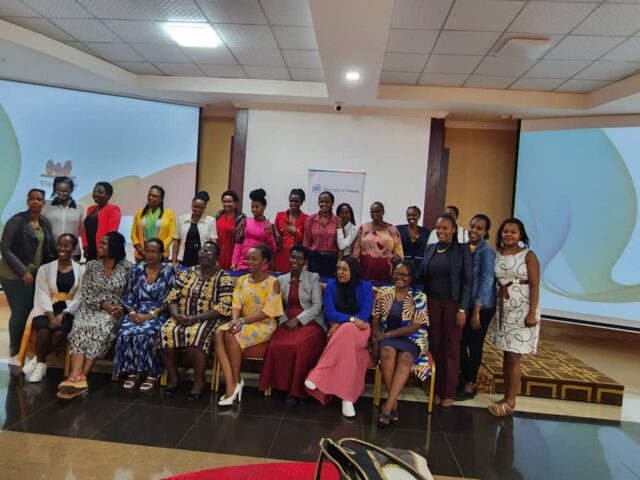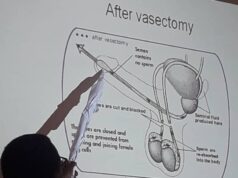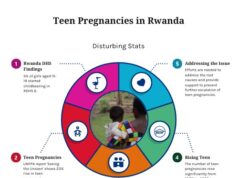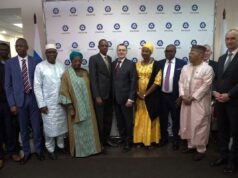
One possible explanation for the dearth of female news anchors and opinion leaders is the prevalence of sexual harassment in the industry.
According to a study conducted on sexual harassment in the workplace by The Women In News (WIN) in the 20 countries where WIN has a presence, women make up the majority of those who report experiencing sexual harassment at work, with managers or higher-ups being responsible for 41% of reported incidents. It also showed that half of all female media executives have experienced some form of sexual harassment.
On 30 November 2022, WIN members gathered at the Lemigo Hotel in Kigali for the 1st In-House “HerStory,” a program designed to highlight the contributions of women in leadership roles and the news media. During the meeting, attendees received a research report that provided further context for the prevalence of sexual harassment in the media today.
There was a meeting where Madame Denise Kanzayire, from Paxpress, stated that 30% of victims of sexual harassment did not disclose their instances for various reasons including organizational impediments, lack of evidence, indifference, and fear of losing their employment. According to the findings, more than 40% of victims who did not come forward about their experiences did so out of concern for their careers and the opinions of their peers inside the business.
Madame Ingabire Egidie Bibio, Chairperson of The Association of Rwandese Female Journalists (Arfem), noted that the media industry has traditionally been seen as a male-dominated field, and that women have avoided entering the field for a very long time because of this. The men in this field have more seniority and authority, which gives them the opportunity to promote and assign workers, but they typically pass over more qualified women for these promotions. She added that there have been several accusations that senior male auditors assign the most essential and compelling story ideas pitched by women to their male colleagues. She thinks that this is discouraging to women and holds them behind in the media industry.
According to Winifred, who works for a media company that collaborates with WIN in Kenya, women in the business are leaving for greener pastures in the corporate world and the field of public relations because they feel more at ease there. They may also join groups where they will not have to interact directly with men.
Audience members, representing Rwanda’s various media outlets, voiced their dismay at the prevalence of sexual harassment against female interns in the country’s newsrooms, where many women report feeling demoralized after entering the field hoping to gain a mentor and supportive colleagues only to be met with aggressive advances from their superiors or coworkers seeking sexual favors in exchange for promotion.
Madam Berna Namata, senior journalist was invited by WIN to participate in a fireside talk about the difficulties, prospects, and consequences of amplifying women’s voices in the Rwandan media at the same event. Now a role model for many women in the media, Berna Namata initially admitted that she was never interested in journalism and instead wanted to be a lawyer. She described how her work as a business reporter required her to grasp the public’s interest in the economy and articulate that desire to business experts in order to acquire answers and enlistment. Berna Namata then went on to applaud the decision of young women to pursue journalism and express gratitude to those who had already made that choice. “Journalism is strength; it provides access to those in authority and a forum in which to defend the rights of the voiceless,” says author and journalist Amy Davidson. She confirmed that having a fellow woman in a leadership position who was there to mentor and guide her made a much bigger difference in her career development than a man could have done, despite the fact that this profession still presents particular challenges to women, such as being criticized for raising up and interrogating about important matters, inequality in pay and unfair promotions, and all the challenges that come with being a wife and a mother in this profession.
This meeting was also attended by Mr. Peacemaker Mbugiramihigo, MINALOC’s media policy analyst.
H.E. Paul Kagame’s opening statement at the Global Gender Summit 2019 at the Kigali Convention Centre (KCC) was quoted as the starting point for his speech: “When women gain, everybody gains.” His lyric stressed that empowering women to speak up in the media is not a female-only responsibility. He then cited a prominent businessman, Mr. Henry Ford, founder of the Ford Motor Company: “Coming together is a beginning, remaining together is progress, working together is success.”
After presenting the Rwanda Media Barometer records, which showed a significant gender gap in coverage of topics like Economy, Weather, and Crime, Mr. Peacemaker Mbugiramihigo suggested that more practical trainings be provided for journalists to empower and ensure their readiness for a career in journalism and leadership.
Adeodata Ange













